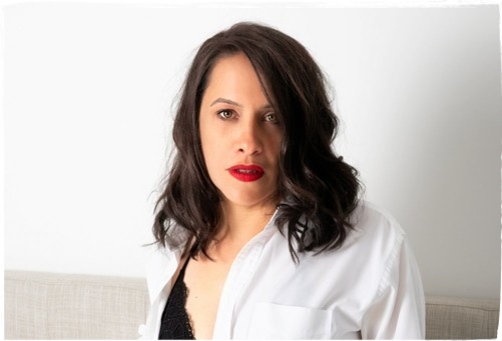Kura Forrester: Kura Shoulda Woulda
Kura Forrester
The best-titled show of the Comedy Festival, Kura Shoulda Woulda, isn’t so much a reflection on Billy T nominee Kura Forrester’s regrets (her autonomy over her role as black sheep indicates she has none), but on her role as the youngest in her family. The eponymous expression is used to convey either dismissiveness or disappointment, and there’s plenty of both as Forrester entertains with anecdotes on her childhood, formative years, and adult life.
The family food pyramid is a great metaphor, but the order in which Forrester constructs it, due to the tangential narrative of events, means it doesn’t build progressively with the show, and the final line/message consequently lacks punch. There’s plenty of familiarity in the dynamics Forrester presents, and she does so with a confident yet casual performative style that feels more like banter with friends (and some technical support) than a stage show. And while Forrester will occasionally employ comedic craft, such as the rule of three or pull back and reveal, they are often little more than mechanical devices that provide construct over content.
Forrester is a brilliant character actor, but “all of the eccentric characters in each story” are notably reduced to three, and aside from some superficial commentary on race relations through Amanda and Rosalind, and plot points from sister Kayla, there is very little that these characters contribute to the show. Added to this is the jarring jump between her stand up and character work, awkwardly parenthesised with “so that’s so-and-so” and “we’ll meet them again later”.
There’s no doubt that Forrester is funny, and while her comedy resonates and succeeds in entertaining the audience, the translation to a one-hour show ultimately lacks some fundamentals.

